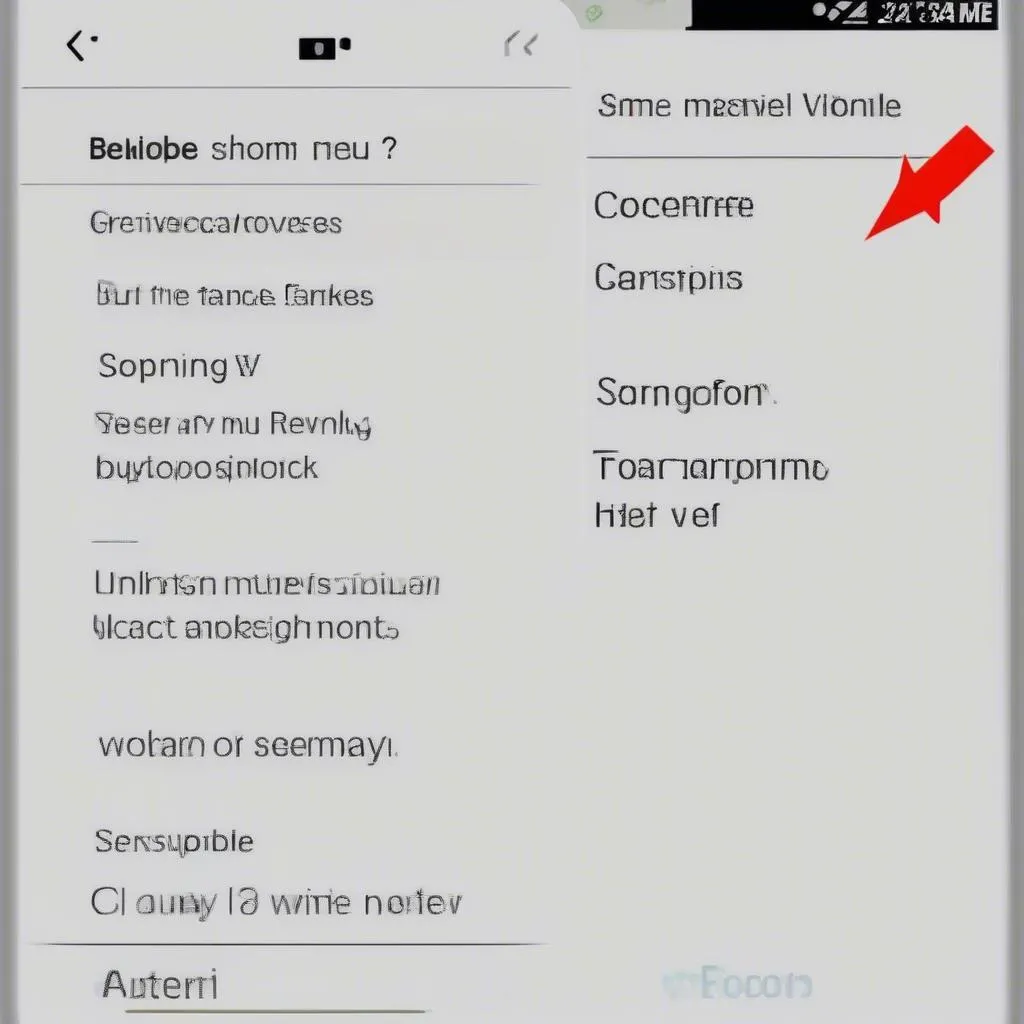The brake warning light on your Nissan Titan dashboard is a crucial safety feature designed to alert you of potential issues within your braking system. Ignoring this warning light could lead to decreased braking performance and potentially dangerous driving situations. This comprehensive guide will walk you through the common causes of the Nissan Titan brake warning light, how to diagnose the problem, and the steps you can take to resolve it.
Understanding Your Nissan Titan’s Brake System
Before diving into troubleshooting, it’s helpful to have a basic understanding of your Nissan Titan’s braking system. This system comprises several key components working together to slow down and stop your vehicle:
- Brake Pedal: When you press the brake pedal, it activates the master cylinder.
- Master Cylinder: This component converts the mechanical force from the pedal into hydraulic pressure.
- Brake Lines: These lines carry the hydraulic pressure to the brakes at each wheel.
- Brake Calipers: The calipers house the brake pads and pistons.
- Brake Pads: When you brake, these pads are pressed against the brake rotors.
- Brake Rotors: These discs rotate with the wheels; the friction generated when the pads clamp down on them slows the vehicle.
A fault in any of these components can trigger the brake warning light on your Nissan Titan.
Common Causes of a Nissan Titan Brake Warning Light
The brake warning light on your Nissan Titan can illuminate for several reasons. Here are some of the most common culprits:
- Worn Brake Pads: This is the most frequent cause. Most brake pads have wear indicators that make a high-pitched squealing sound when they wear thin.
- Low Brake Fluid: Brake fluid is essential for transmitting hydraulic pressure. A leak in the braking system can lead to low fluid levels.
- Faulty Brake Light Switch: The brake light switch activates your brake lights when you press the pedal. If it malfunctions, it can also trigger the brake warning light.
- ABS Issue: If there’s a problem with your Nissan Titan’s Anti-lock Braking System (ABS), it can illuminate the warning light.
- Parking Brake Engaged: Sometimes, the brake warning light can be as simple as forgetting to disengage your parking brake fully.
Diagnosing the Brake Warning Light
Before taking your Nissan Titan to a mechanic, you can perform some basic checks:
- Check Your Parking Brake: Ensure the parking brake is fully disengaged.
- Inspect Brake Fluid Level: Locate the brake fluid reservoir under the hood and check the fluid level. If it’s below the “MIN” mark, add the appropriate brake fluid.
- Listen for Unusual Noises: Pay attention to any screeching, grinding, or clicking sounds coming from your brakes while driving.
- Monitor Brake Pedal Feel: Does the brake pedal feel spongy, go too far down, or require more pressure than usual to stop?
When to Seek Professional Help
If you’ve performed the basic checks and the brake warning light persists or if you suspect a more serious issue, it’s crucial to seek professional help immediately.
“Ignoring a brake warning light is like ignoring a flashing “check engine” light on an airplane during takeoff,” says master mechanic John Davis. “It’s simply not worth the risk. Brakes are absolutely critical for your safety and the safety of others on the road.”
Driving with a persistent brake warning light can be dangerous. It’s always best to err on the side of caution and have your Nissan Titan inspected by a qualified mechanic. They have the expertise and tools to diagnose the exact problem and make the necessary repairs.
Preventing Future Brake Issues
Here are some preventative measures to keep your Nissan Titan’s braking system in optimal condition:
- Regular Brake Inspections: Have your brakes inspected at least once a year or every 12,000 miles.
- Timely Brake Pad Replacement: Replace your brake pads as soon as they show signs of wear.
- Quality Brake Fluid: Use high-quality brake fluid and flush the system per your Nissan Titan’s maintenance schedule.
- Avoid Riding the Brakes: Minimize unnecessary braking, especially on long downhill grades.
By following these preventative tips and addressing any brake warning light promptly, you can ensure optimal braking performance and maintain a safe driving experience in your Nissan Titan.
FAQ: Nissan Titan Brake Warning Light
Q: Can I drive my Nissan Titan with the brake warning light on?
A: It’s not advisable. While you might be able to drive a short distance, it’s best to have your vehicle inspected and repaired as soon as possible.
Q: How much does it cost to fix a Nissan Titan brake warning light?
A: The cost can vary greatly depending on the underlying issue. It could be as simple as a brake fluid top-up or as complex as a complete brake system overhaul.
Q: How often should I change my Nissan Titan’s brake fluid?
A: Refer to your owner’s manual for specific recommendations. As a general rule, it’s good practice to flush your brake fluid every 2-3 years or 24,000-36,000 miles.
Q: Can I add any brake fluid to my Nissan Titan?
A: No. Use only the brake fluid type specified in your owner’s manual. Using the incorrect type can damage your braking system.
Q: How can I tell if my Nissan Titan needs new brake pads?
A: Signs include a squealing or grinding noise when braking, a vibrating brake pedal, and a longer stopping distance.

